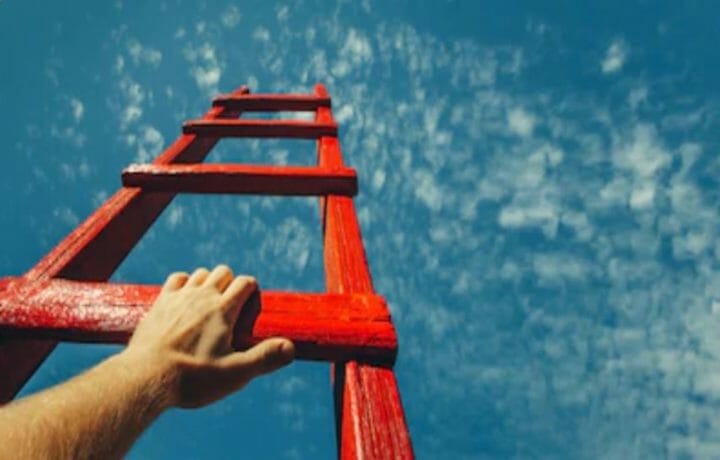It’s no secret that you might have to wait and wait and wait to find out if your security clearance application was approved. In fact, the average timeline for adjudication is 37 days—at its fastest. Add in investigation timelines – which average between 65 and 119 days for the fastest 90% of investigation – and you could be waiting months with no news about your security clearance status.
And while you’re waiting, you might be feeling a little bit anxious. Carla Marie Manly, a clinical psychologist who specializes in personnel services, has worked with many individuals who have undergone the often-arduous process of applying for security clearance. She says that even in the best of circumstances, her patients “have routinely found the process intense and stressful,” in large part because of the customarily long time it takes to receive a response to the application.
Add to the wait time a potential loss of income or other job possibilities, and the uncertainty of being in a long-term holding pattern, and “even those people who are naturally patient often find themselves feeling stress and anxious while waiting for a response,” Manly says. And while that response is perfectly normal, allowing anxiety to take over isn’t necessarily healthy, she says.
If you’d like constructive ways to deal with your anxiety while you’re waiting for clearance, then check out these six tips. They’ll help you stay mentally healthy and ready for an approval letter.
Give your current job your full attention.
If you’re currently employed while waiting for security clearance, don’t slack at work, warns Manly “Not only will you feel better about yourself by remaining productive and busy,” she says, “but your diligence will be noted when your employment references are checked.”
If you’re not working while you wait, then consider making searching for other job options a full-time job. “Although you may wish to hold off on pursuing any other possibilities while awaiting approval, it can be helpful to stay abreast of other options and possibilities,” she says.
Build connections with other people.
The application process can not only be stressful but also isolating, explains Yesel Yoon, Ph.D., a licensed clinical psychologist. And isolation can lead to even more anxiety. “Being social creatures by nature, we need human connection for emotional wellness,” Yoon explains. So, if you’ve found yourself pulling back during this waiting period, it’s time to reach out to friends and family members you’ve neglected during the application process. “Staying connected to others will bring you out of … isolation and give you a greater sense of purpose,” Yoon says.
But make sure that when you do connect, you “don’t take your stress or anxiety out on loved ones,” Manly says. “Take care to spend thoughtful, connective time with friends and family [instead]. This will reduce stress, increase positivity, and strengthen interpersonal connections.”
Engage in other activities you enjoy.
Whether it’s a hobby or simply binging the latest Netflix drama, it’s important to spend more time and energy on things you enjoy. Why? Because “the more time and energy you put into something other than waiting, thinking, or ruminating about the application, the better,” says Yoon. If you’re out of Netflix shows and short on hobbies, then now might be the time to take on a house or other intensive project. “Now that you got the hard part of the application done, put that away and turn your attention towards these long-awaited projects,” Yoon recommends.
Invest in your physical health.
Physical and mental health are intimately connected. Research has shown that exercise helps to reduce stress, improve sleep, and even stave off depression. Eating a healthy, balanced diet can also improve your mood, fight fatigue, and yes, reduce anxiety. So, during this waiting period, “channel your energy into exercise, self-reflection, and healthful eating habits, rather than letting anxiety and stress take ahold of you,” Manly says.
Practice mindfulness and meditation.
While meditation may not be your thing, Yoon encourages you to give it a try during this time. “Mindfulness meditation or related stress-reduction based practices will help you focus your attention,” he says. “This can help relieve stress, improve concentration, bring a greater sense of ease, and improve physical health.” If you’re new to meditation, simply start by paying attention to your breath. “You are breathing anyway, [so] why not notice where it is and how it feels in your body to breathe?” says Yoon. It sounds almost too good to be true, but “this simple act has profound mental and physical benefits,” he says, adding “you can do this anytime anywhere.”
Pay attention to the present.
Waiting for word on your application can get you stuck in a rut of only thinking of the future. “But getting stuck in a future-oriented mindset for too long or too often can lead to more stress,” Yoon warns. So, when you feel your mind focusing on the future, try your best to return to a present-oriented mindset by asking yourself questions such as: What is important to you at this moment today, and how can you closely attend to what is going on today,” Yoon says. Not only will this help you reduce anxiety now, but “paying attention to the present will actually help you be more focused and mindful in the long run so you can perform better in the future,” he says.




